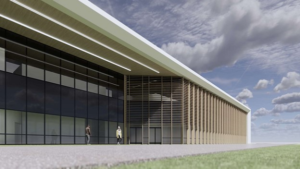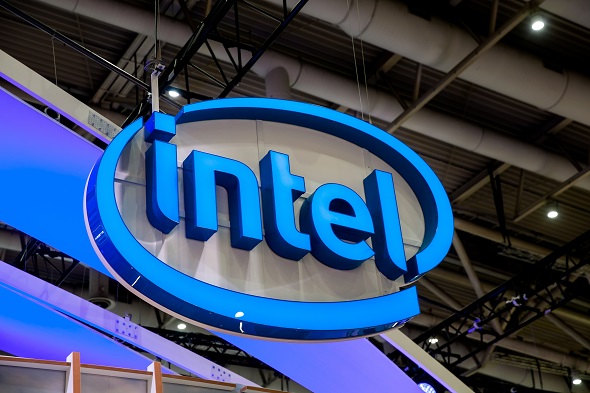
Artist’s rendering of Intel’s planned R&D “mega lab” credit: Intel
Intel announced a $700 million “mega lab” at its Jones Farm campus in Hillsboro, OR, to be used for R&D in liquid cooling and other sustainability technologies with implications for power-insatiable HPC data centers.
The company said it plans to build a 200,000-square-foot, facility “focused on innovative data center technologies and addressing areas such as heating, cooling and water usage” – and heat recapture and reuse.
Additionally, Intel introduced what it said is the first open intellectual property (open IP) immersion liquid cooling solution and reference design. “With the initial design proof of concept initiated in Taiwan, Intel aims to simplify and accelerate the implementation of immersion liquid cooling solutions throughout the ecosystem globally,” the company said.
“The future of the data center and data center design is based on innovative and sustainable technologies and practices, and I’m proud of the work we’re doing every day to help make a sustainable future a reality,” said Sandra L. Rivera, Intel EVP/GM of the Datacenter and AI Group
Construction on the lab will begin this year with opening expected in late 2023. Additionally, the lab will qualify, test and enable Intel’s portfolio of data center products including Xeon, Optane, network interfaces and switch gear, Intel Agilex FPGAs, Xe architecture, Habana accelerators and future products under development.
The lab will also host an advanced technology showcase for Intel products in various data center environments in the lab, in an effort to accelerate adoption of these new technologies throughout the ecosystem.
Intel described the open IP immersion solution and reference design is “an open, easy-to-deploy and easily scalable total cooling solution. It will allow partners to accelerate the introduction of Intel solutions in response to the trend of increasing data center power density to enhance operational efficiency. The initial solution and design proof of concept will be completed in partnership with Intel Taiwan and across the Taiwanese ecosystem in a phased approach, with plans to scale out globally. Intel will continue to work with partners to develop and validate related solutions.”
The investment is a response to data centers consumption of approximately 1 percent – and growing – of global electricity demand and account for about 0.3 percent of global carbon emissions. “Investing in standardizing cooling technologies and R&D for future innovations strengthens Intel’s commitment to more sustainable technology solutions,” Intel said. “Research shows that immersion cooling with energy reuse could reduce carbon emissions by 45% compared to traditional data center usage.”




